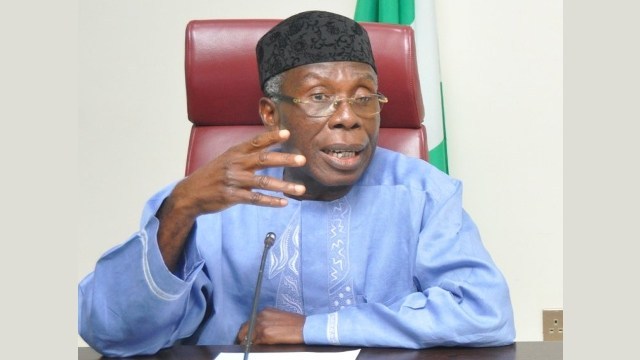Nigeria Now Major Worlds Rice Exporter — Ogbe

By Ngozi Onyeakusi — The minister of agriculture and rural development, Mr. Audu Ogbe has said that Nigeria does not only have the capacity to feed itself, but has becomes a major actor in agricultural exports to other countries.
Ogbe equally said that 90 per cent of rice consumed in Nigeria is produced locally.
Ogbeh stated this on Tuesday at the 2019 Annual Research Review and Planning meeting held at the Institute for Agricultural Research (IAR), Zaria, Kaduna State.
The minister who was represented by the director of extension services in the ministry of agriculture and rural development, Dr Karima Babangida, said that the support of the present administration had triggered a visible shift “to eating what we grow rather than eating imported food.
“One very good example that we see today is the locally home grown Nigerian rice, hitherto, Nigeria has been a major and largest importer of rice from Thailand and this implies largest importer in the world.
“But today, we have been able to achieve a paradigm shift in the right direction and we are now producing 90 per cent of the rice we eat in the country, I think we should appreciate our farmers here.
“Nigeria does not only have the capacity to feed itself, it also becomes a major actor in agricultural exports to other African countries, Europe and American countries, including the Far East, especially China,” he said.
He said similar things were happening in other sectors of the agricultural economy.
He said with collective efforts of stakeholders, Nigeria will have a favourable balance of trade in food items.
Ogbeh stressed the need for all stakeholders, researchers, extension service providers, farmers groups, policy makers, development partners, input suppliers, agro-based NGOs among others must all synergise to continue to harness the enormous potential in the country.
The minister called for improved crop varieties, both arable and tree crops, livestock and fisheries, adding that it was the only way to improve comparative and competitive advantages and become self-sufficient in food and agricultural production.
“The national agricultural extension system also needs to strongly adopt best piracies in the cultivation of the various commodities to ensure high quality farm outputs that in turn determines the quality of the final product.
“The extension system has a critical role to play in ensuring famers’ adherence to processes that assure quality and traceable of farm produce,” he said.
Earlier, the chairman of the occasion and the vice-chancellor of Ahmadu Bello University (ABU), Zaria, Prof. Ibrahim Garba had remarked that the future of Nigerian economy depended on agriculture.
Garba, who was represented by the deputy vice-chancellor academics, Prof. Ezra Bako-Amans said the Nigerian agricultural export potential is enormous.
“Nigeria has all it takes to lead the African trans-border trades in food and fibre.
“It can cut its global share too in a number of crops it has comparative advantages in their production.
“The world’s cotton economy for instance, is about 1 trillion dollars. Needless to say is that cotton used to be one of the most important fibre crops in Nigeria, but down the line, we lost relevance on this crop.
“With the current renewed focus on agriculture, this glory can be reclaimed and Nigeria can have her fair share in the global cotton industry,” he said.
The vice chancellor requested on behalf of the IAR and other research related units of the university the federal government to return the mandate of the institute to contribute toward the improvement of some horticultural crops to which the institute had relative advantage to handle.
He also appealed to the ministry to consider mechanism that would make industries fund and support developmental research.







Leave a Reply